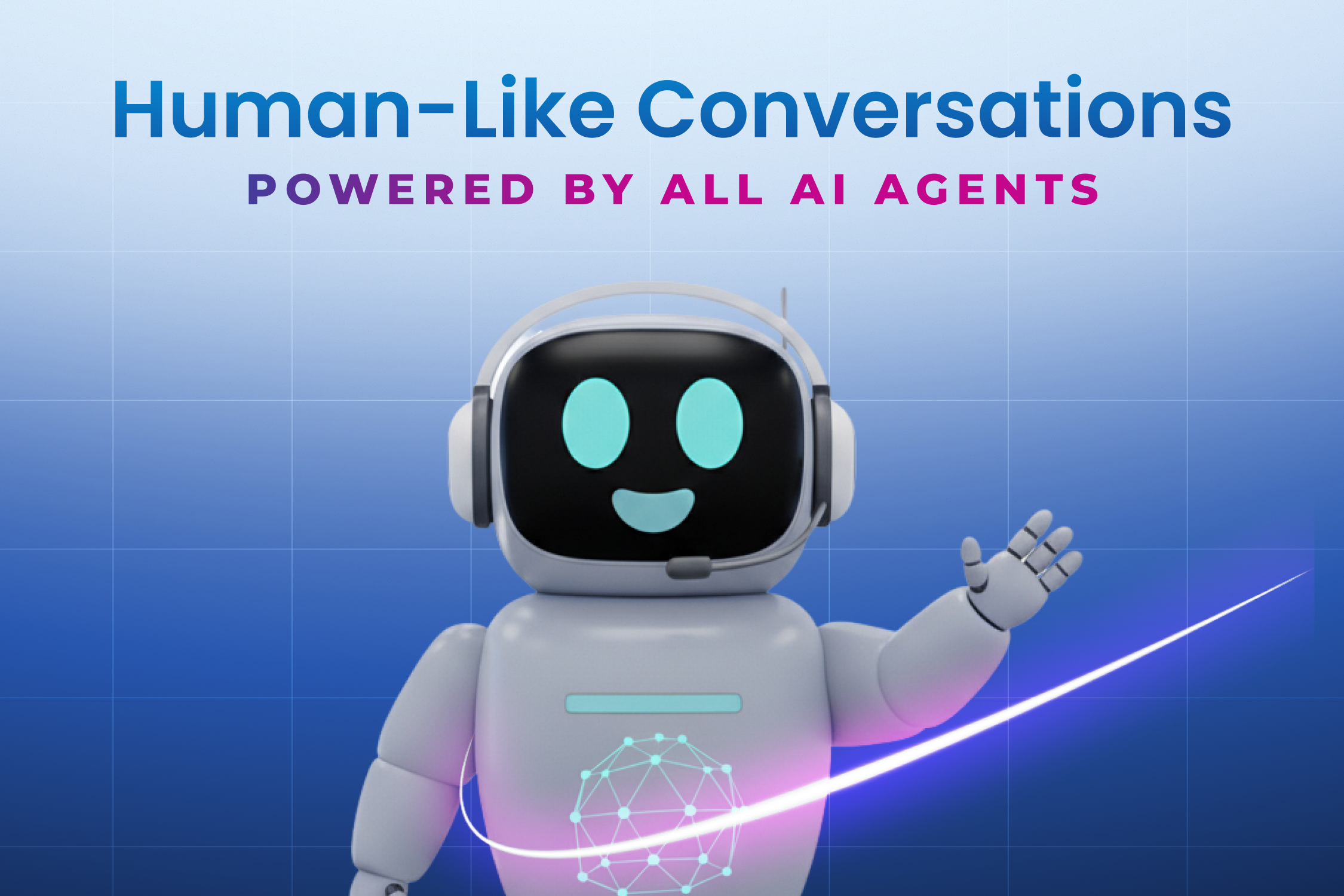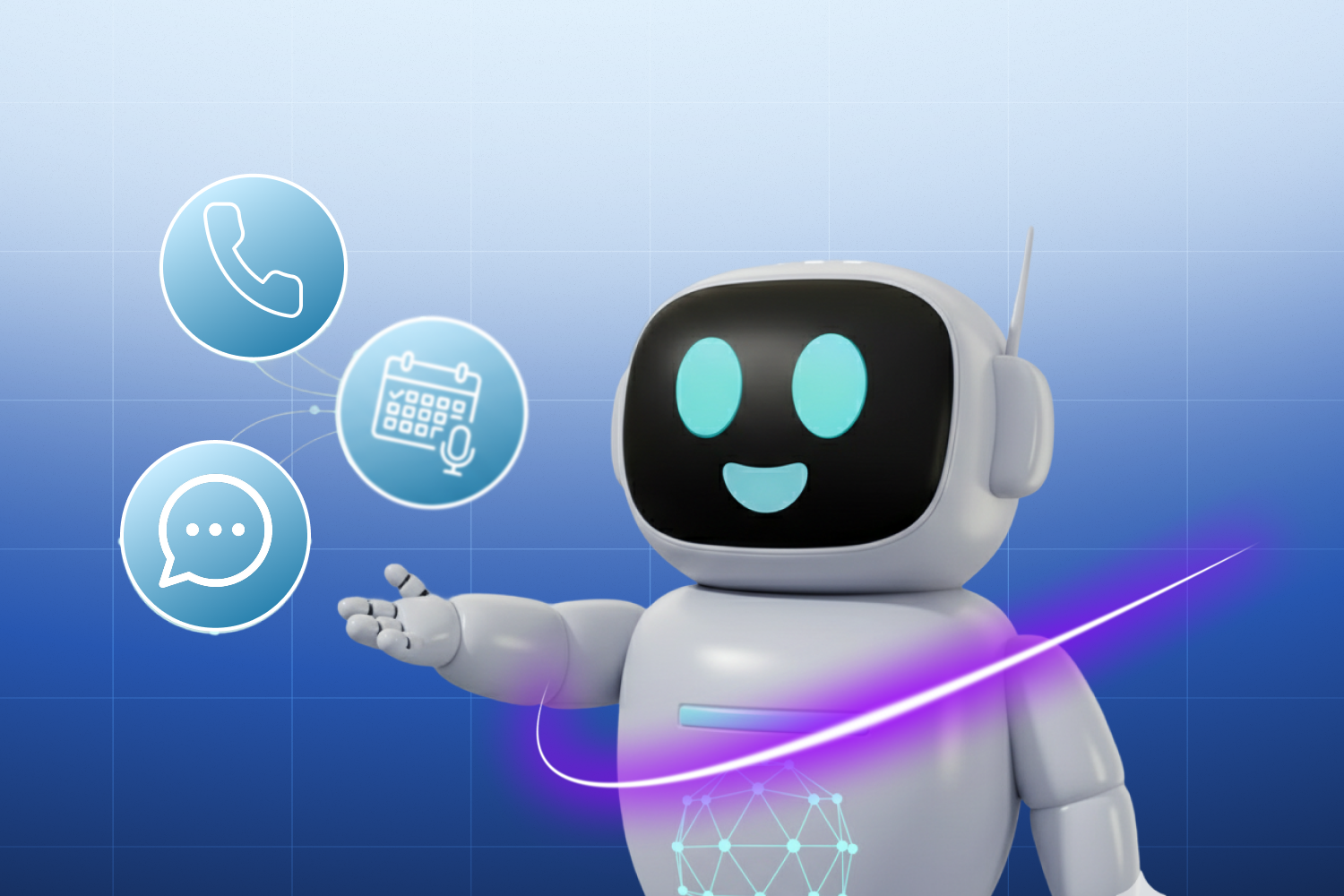How All AI Agents Deliver Human-Like Conversations

Chatbots have been around for over a decade, helping businesses automate customer interactions and provide basic support. However, as customer expectations evolve, traditional chatbots—limited by predefined scripts—struggle to deliver natural, human-like conversations. Enter AI Agents, a new generation of intelligent, autonomous systems that go beyond static dialogues to understand intent, context, and emotion.
At All AI Agents, we design advanced agentic AI systems capable of learning, adapting, and responding like real humans. These agents combine the power of conversational AI, natural language processing (NLP), and machine learning to deliver seamless, personalized communication at scale.
Learn more about our platform at All AI Agents.
From Chatbots to AI Agents: The Evolution of Automation
Early chatbots were rule-based systems designed to handle structured conversations. They relied on keyword matching and decision trees, which made them suitable for simple tasks such as answering FAQs or providing order updates. However, they lacked the ability to understand nuance or adapt to complex customer needs.
AI Agents, on the other hand, are built on agentic automation—a concept that allows them to operate independently, make decisions, and learn from every interaction. Unlike chatbots, AI agents do not require constant human input or pre-programmed responses. Instead, they leverage contextual understanding to manage end-to-end workflows.
For example, while a chatbot might respond to a question about business hours, an AI agent can book a meeting, send confirmation details, and follow up automatically.
Read more: Forbes: What Is Agentic AI?
How AI Agents Deliver Human-Like Conversations
1. Contextual Understanding
AI agents use Natural Language Understanding (NLU) to grasp meaning beyond keywords. They recognize tone, sentiment, and intent, ensuring that responses are contextually relevant. For instance, if a customer expresses frustration, the agent adapts its tone and prioritizes escalation.
Learn: IBM — What Is NLP?
2. Memory and Continuity
Traditional chatbots reset after every session. AI agents maintain a memory of past interactions, enabling personalized experiences. They can recall user preferences, purchase history, and prior concerns, much like a human representative.
3. Emotional Intelligence and Adaptability
Advanced AI agents incorporate sentiment analysis to detect user emotions and adjust their approach. This creates empathy-driven interactions that feel natural, reducing friction and improving satisfaction.
4. Seamless Multichannel Communication
While chatbots are typically confined to one platform, AI agents can manage voice, text, WhatsApp, SMS, and email channels simultaneously. This omnichannel flexibility means customers can engage however they prefer—without losing context.
5. Agentic Decision-Making
AI agents don’t just respond—they act. Using agentic reasoning, they make decisions in real time, such as routing calls, sending reminders, or scheduling meetings. This bridges the gap between conversation and action.
Explore: Gartner: AI in Customer Service
Why Businesses Are Moving Beyond Chatbots
According to McKinsey, companies adopting intelligent automation see productivity improvements of up to 30% and higher customer retention rates. As markets become more competitive, businesses can’t afford robotic or impersonal interactions.
AI agents solve this challenge by:
- Providing 24/7 availability without human fatigue.
- Delivering natural, flowing conversations that feel authentic.
- Automating complex tasks like scheduling, reminders, and customer follow-ups.
- Integrating with business systems such as calendars and CRMs for full workflow automation.
Resource: World Economic Forum – Future of Jobs 2023
Real-World Applications
- Customer Support: Resolve high-volume inquiries without sacrificing empathy.
- Sales Enablement: Qualify leads, answer objections, and book appointments.
- Operations: Handle repetitive tasks such as follow-ups, feedback collection, and updates.
- Healthcare & Real Estate: Provide 24/7 assistance, appointment scheduling, and follow-ups through voice or text.
Example: An AI agent at a property management firm can answer rental queries, schedule viewings, and send directions—all without human intervention.
The Future of Conversational AI
The shift from chatbots to AI agents marks a new era of intelligent interaction. Future developments in Generative AIand Reinforcement Learning will further refine their ability to understand complex intent and context. Soon, AI agents will become integral to digital ecosystems, functioning as autonomous business collaborators rather than simple assistants.
Further Reading: PwC AI Analysis
Conclusion
Chatbots were the first step toward automation, but AI agents are the leap toward true human-like conversation. With contextual intelligence, emotional awareness, and agentic automation, they’re redefining what customer engagement means.
At All AI Agents, we’re building the next generation of conversational AI—where every interaction feels natural, personal, and intelligent.
Ready to experience the difference? Book a demo and see how AI Agents can elevate your business beyond chatbots.








